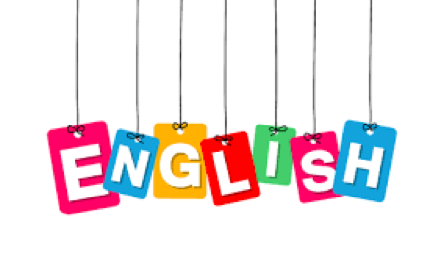- Home
- About Us
- Curriculum Subjects
- English
English
Back
 English Intent
English Intent
At Worsley Bridge Primary School, it is our aim to provide an English Curriculum that fosters children’s love of reading, writing and discussion; which will inspire them to be lifelong learners. Our intention is to provide an exciting, diverse and inclusive English curriculum that is sequenced progressively to develop a strong learning foundation for all children to acquire the knowledge and skills to read, write and speak with confidence, fluency and understanding. We believe that secure foundations in English skills are crucial to a high-quality education and provide opportunities for all our children to develop as independent learners by encouraging self-evaluation and making connections with all the other areas of the curriculum We aim to develop pupils’ literacy skills and vocabulary across the whole curriculum, providing our pupils with the tools they need for success in their life beyond Worsley Bridge Primary.
English Implementation
At the heart of our reading curriculum is reading for pleasure. A dedicated reading time takes place regularly where all children can listen to an adult read aloud from their year group core reading spine texts, class book areas or from books of interest brought in from home.
For guided reading lessons we use a core reading spine of texts that include a wide range of authors and illustrators from different backgrounds and nationalities; providing our children with access to high-quality, age-appropriate texts which include fiction, non-fiction and poetry. To develop vocabulary and reading comprehension skills, we explicitly teach the skills of reading using the VIPERS model from Year 2 to Year 6. This continues progressively throughout the school in order to support children to comprehend what they are reading, interpret texts and find information; whilst developing an awareness of authorial intent, genre purpose and literary devices used for effect. Children develop their vocabulary through reading and listening to others read and are also taught vocabulary explicitly.
Phonics is taught in Reception and KS1 using the ‘Bug Club’ phonics programme, where explicit links are made between developing phonetic knowledge, reading and writing. (Please see our phonics section on the website for further information). Children in KS2 who are not secure with their phonics are provided with an intervention programme in small groups, building on from the programme delivered in KS1. This is further supported through appropriate banded reading books, until the children become independent readers when challenging, well-matched texts continue to be provided.
Children participate in daily English lessons, focusing on age-related expectations for their writing within different genres. We recognise the strong relationship between reading and writing and ensure that this link is taught explicitly in lessons to help children make connections within their learning. We use Pie Corbett’s ‘Talk for Writing’ which encourages oracy – this means discussion, imitating and learning rich, high-quality texts, known as ‘model texts’.
Teachers ensure that the standard of writing in the model text sets high expectations for their children and there is progression across year groups. A model text is used as an example of how to be successful at the start of each unit of work and scaffolds the language, grammar and structure of different text types. Vocabulary is clearly displayed within the classroom, as well as the steps of the writing process to support children. Teachers encourage children to be ambitious in their choice of vocabulary both in written work and oral discussions. At the end of the unit children are encouraged to use the model text as a structure for their own writing but also innovate their writing to make it their own.
Children in Reception and Year One develop their letter formation using Bug Club’s formation and ‘sayings’ to support with fine motor control. Fluent cursive handwriting is taught following the Letter-Join programme; from the end of year one to up to year six, to develop letter formation and presentation.
English Impact
The intended impact of our English curriculum is to inspire all children to be enthusiastic readers and writers. Children enjoy reading for pleasure regularly, for information and for enjoyment; where they can discuss books with excitement and interest. Its impact will inspire children to write for different purposes and audiences using adventurous vocabulary choices they have learnt and the skills to draft, edit and improve their writing. The children will be confident, fluent speakers who will express preferences and give opinions, showing their understanding articulately. They remember their learning, transfer skills they have learnt and make connections with other areas of the curriculum. Our children will leave Worsley Bridge ready for secondary school and life beyond.
WRITING Progression of Knowledge and Skills EYFS Year 6READING Progression of Knowledge and Skills EYFS Year 6


